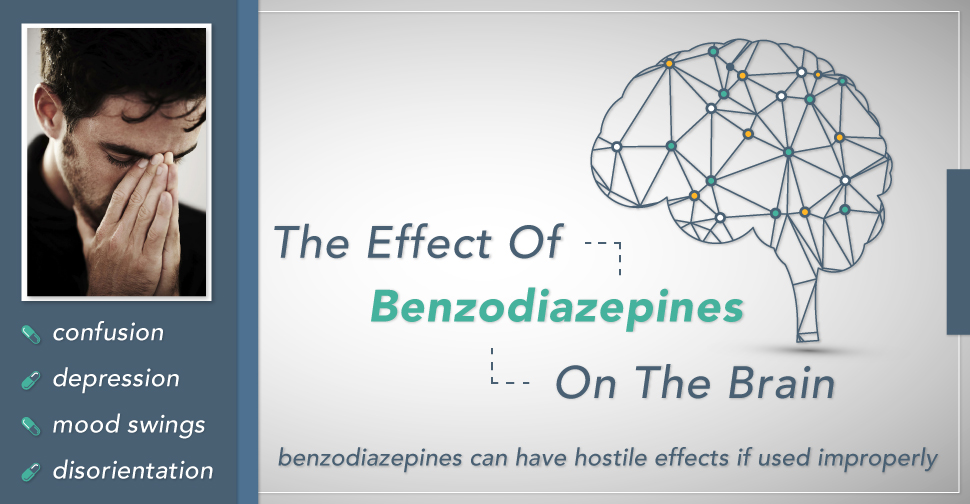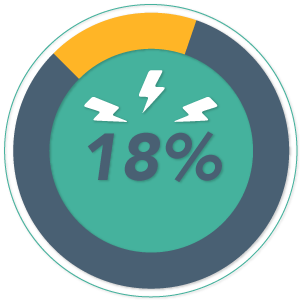
Within any given year, almost 40 million people in the United States (18 percent) face the monster of some sort of an anxiety disorder. Lifetime paranoias and anxiety disorders are strongest from the age of 13 to 18 and can show up as early as age 6.
 With so many facing anxiety, stress, panic attacks, and seizures, benzodiazepines—such as diazepam (Valium) and alprazolam (Xanax)—are commonly being prescribed. There are 15 or more different types of benzodiazepine medications that treat a variety of medical issues. The multiplicity of benzodiazepines are used for: anxiety, muscle relaxant, amnesiac (mild-memory loss), and anticonvulsant. The less intense benzodiazepines, such as triazolam (Halcion) and estazolam (ProSom), are recommended for short-term treatment of sleep disorders. Usually, benzodiazepines are not prescribed for long-term use because of the risk of developing addiction.
With so many facing anxiety, stress, panic attacks, and seizures, benzodiazepines—such as diazepam (Valium) and alprazolam (Xanax)—are commonly being prescribed. There are 15 or more different types of benzodiazepine medications that treat a variety of medical issues. The multiplicity of benzodiazepines are used for: anxiety, muscle relaxant, amnesiac (mild-memory loss), and anticonvulsant. The less intense benzodiazepines, such as triazolam (Halcion) and estazolam (ProSom), are recommended for short-term treatment of sleep disorders. Usually, benzodiazepines are not prescribed for long-term use because of the risk of developing addiction.
While these prescriptions are safe to take, under the directed dosage from a health professional, benzodiazepines can have hostile effects if used improperly or mixed together with other substances such as pain relievers or alcohol.
What Does Benzodiazepines Do To The Brain?
As benzodiazepines infiltrate a person’s system, they create surges of dopamine. This generates a change in the synaptic plasticity in dopamine-producing cells in the body. The pleasure of these feelings is what makes these drugs dangerous for susceptible individuals. Benzodiazepines deteriorate the influence of a collection of cells, called inhibitory interneurons, in the brain’s ventral tegmental area (VTA). This collection of neurons help rein in the overabundance of dopamine levels by downplaying the firing rates of dopamine-producing neurons.
When the benzodiazepines limit these groups of cells, keeping them from doing their job, the dopamine-producing neurons release more dopamine than needed. In other words, while these surges of dopamine are temporary actions, they can leave the cells of the body more susceptible to creating greater dopamine surges. These surges will produce even more extreme feelings of pleasure in the future and can create addiction or abuse of the drug.
Benzodiazepines’ Addictive Qualities
In one experiment, researchers presented a virus containing a light-activated protein, channelrhodopsin, into the dopamine-producing cells of mice. When brought before light pulses from an optical fiber implanted into the animals’ VTA, the channelrhodopsin created the same results similar to those fashioned by addictive drugs.
 “This was a nail-in-the-coffin study to show that activity of dopaminergic neurons leads to synaptic adaptation that is involved in addiction,” said Dr. Lüscher. “This is why addiction is so difficult to treat. Even if you clear the drug from the body, there are long-lasting changes in brain architecture.”
“This was a nail-in-the-coffin study to show that activity of dopaminergic neurons leads to synaptic adaptation that is involved in addiction,” said Dr. Lüscher. “This is why addiction is so difficult to treat. Even if you clear the drug from the body, there are long-lasting changes in brain architecture.”
Almost all CNS depressants work on the brain by affecting the neurotransmitter gamma-aminobutyric acid (GABA). Neurotransmitters are brain chemicals that communicate back and forth between brain cells. Even though the different forms of CNS depressants work in distinctive ways, it is their capability to escalate GABA and their effect on brain activity that creates a drowsy or calming effect to individuals who suffer from anxiety or sleeping disorders.
Even though the majority of benzodiazepine have the same physical effects, their dosage and absorption timeframe into the bloodstream can have different results. If these drugs are used for a greater period of time, much bigger doses may be stressed for use to attain the needed effects.
Be Aware Of Dependency
If benzodiazepines are continually used, this can lead to dependence or withdrawal symptoms when the drug is suddenly reduced or completely removed. Because CNS depressants are used to slow down brain activity, as soon as an individual ceases taking them, there can be an echo effect. This can result in seizures or other destructive issues. Even though withdrawal from benzodiazepines can be challenging, the cases of it being deadly are rare.
But, be aware that the prolonged use of barbiturates can have much more deadly results. If an individual is thinking about ceasing to use CNS depressants or are having withdrawal symptoms from the CNS depressant, they should speak with a physician.
Effects Will Vary
Originally, the use of benzodiazepines were believed to be almost free of adverse effects, but with current studies, they are now well known to have threats of reliance, withdrawal, and undesirable side effects. Included within these negative results are cognitive complications. When used long term, benzodiazepines have been known for triggering damage in several areas of brain function. Among some of such is: visuospatial ability, processing function, and verbal learning. It is argued that long-term usage has no lingering cognitive damage.
To gain understanding, studies were done in order to find the truth if cognitive dysfunction did happen to patients treated long term with benzodiazepines. When benzodiazepines were removed, the patient did improve but did not go back to the proper function.
Neuroimaging studies have shown momentary alterations in the brain, after benzodiazepine administration, but no brain irregularities in patients treated long term. Patients should be instructed of the possible effects when treated long term with benzodiazepines, but also be communicated to that the impact of these effects may be irrelevant to them.
Side Effects Of Low To Moderate Doses
These vary depending on the type of benzodiazepine, the quantity, and the individual. They can include:
- Drowsiness, exhaustion, fatigue
- Impaired thinking and memory
- Depression
- Slurred speech, stuttering
- Confusion
- Vertigo
- Tremors
- Respiratory depression
- Nausea, constipation, dry mouth, abdominal discomfort, loss of appetite, vomiting, diarrhea
- Impaired motor coordination
- Altered vision
High Doses
At high doses benzodiazepines can create intense drowsiness. In addition to the side effects listed above, the following are also a risk:
- Slowed reflexes
- Hostile and erratic behavior
- Euphoria
- Mood swings
Long-Term Effects
Some benzodiazepines are removed from the body gradually. Thus, consumption of multiple doses over long periods can lead to substantial buildup in fatty tissues. The signs of over-usage may not appear right away. Some include:
- Impaired thinking, memory, and judgment
- Disorientation
- Confusion
- Slurred speech
- Muscle weakness, lack of coordination

Help For Dependence
 If you are having adverse side effects from benzodiazepines, reach out to us at DrugRehab.org. We can help you work through your problems with drug use, abuse, and addiction. With medical professionals working closeby, we can get you the treatment you need to continue down a healthy path in life. Contact us today.
If you are having adverse side effects from benzodiazepines, reach out to us at DrugRehab.org. We can help you work through your problems with drug use, abuse, and addiction. With medical professionals working closeby, we can get you the treatment you need to continue down a healthy path in life. Contact us today.
Sources
Brown, M.T.C., et al. Drug-driven AMPA receptor redistribution mimicked by selective dopamine neuron stimulation. PLoS One. 5:12: e15870, 2010. Drugabuse.gov, http://www.cesar.umd.edu/cesar/drugs/benzos.asp
